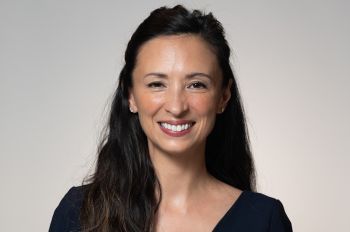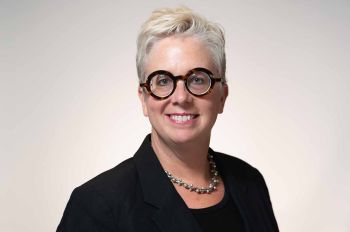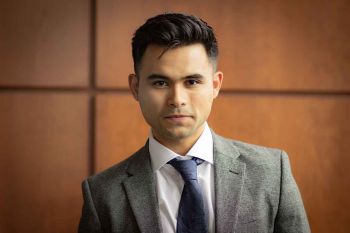A Reasonable Accommodation: Strubbe Prize-Winning Paper Examines Remote Work

“It’s harder to tell an employer, ‘I can’t physically be in the office because of my mental disorder,’ than it is to say, ‘I can’t physically be in the office because I physically can’t be in the office,’” says Erick Rivera ’24, winner of the 2024 Mary Rose Strubbe Labor and Employment Prize.
Rivera’s paper, titled “Mental Health, Remote Work, and Discrimination,” examines the ways that courts and employers have responded to work-from-home accommodation requests from employees with mental illness. Rivera studied the way that COVID-19 changed—or rather, didn’t change—the way that the requests were handled.
“It is surprising how little has changed given the gravity of what COVID-19 was,” says Rivera. “We learned a lot from the pandemic about the possibilities of working from home, and yet statistically there’s not been a big change in how often courts have deemed working from home to be a reasonable accommodation.”
In the paper, Rivera followed a fictional person with obsessive-compulsive disorder (OCD) through the process of requesting and fighting for accommodations. The fictional person worked from home before the pandemic, but after the pandemic, a return-to-work mandate from their employer changed the employer’s perspective of the accommodation.
“People who previously said it’s OK to work from home are being pressured from higher ups to bring people back into the office,” Rivera says. “They’re looking at someone who has OCD and has a reasonable accommodation of working from home as a holdout.”
According to Rivera, requests made on the basis of physical disability tend to be easier for employers to understand, but accommodation requests should be dealt with based on the hindrance that the disability places on the person’s life—not how visible it is to a third party.
“The [United States Equal Employment Opportunity Commission] guidelines go on to describe major life activities such as eating, sleeping, breathing, thinking, talking, walking,” he says. “Objectively speaking, OCD can affect a lot of those things. It can affect talking. It can affect walking. It can affect thinking. It is a protected disability under the Americans with Disabilities Act Amendments Act.”
Rivera recently started as a trademark attorney at Pattishall, McAuliffe, Newbury, Hilliard & Geraldson LLP.
“The trademark is the reason why if I go to the store and I buy a Coke, I know that Coke isn’t someone’s weird bathtub brew that they put into a bottle and threw the Coke label on,” he says. “I like trademark law because in a lot of ways it protects the consumer.”
Rivera stumbled into IP law while working as a musician and performer.
“After I graduated college, I was a copy clerk at a law firm. I didn’t have any office skills. I got a degree in music,” he says. “I went through a temp agency, and they were like, ‘You can go make copies at this personal injury firm.’ Then I took that very vague experience and got an assistant job at an IP firm in Chicago.”
Rivera loved the job and worked his way up, eventually deciding to get his J.D. at Chicago-Kent. However, he’s glad he took a detour with a labor and employment law course, which is how his paper came to fruition.
“I didn’t have a lot of experience in employment law going into this,” he says, “but I took the course because I’m going to be an employee, and I think it’s important to understand your general rights as someone who’s entering the workforce.”
The Strubbe Prize is awarded annually for the best piece of legal writing in labor and employment law by a Chicago-Kent student or alumni. Mary Rose Strubbe served Chicago-Kent for 23 years as director of Legal Research and Writing and as assistant director of the Institute for Law and the Workplace.
Photo: Provided



